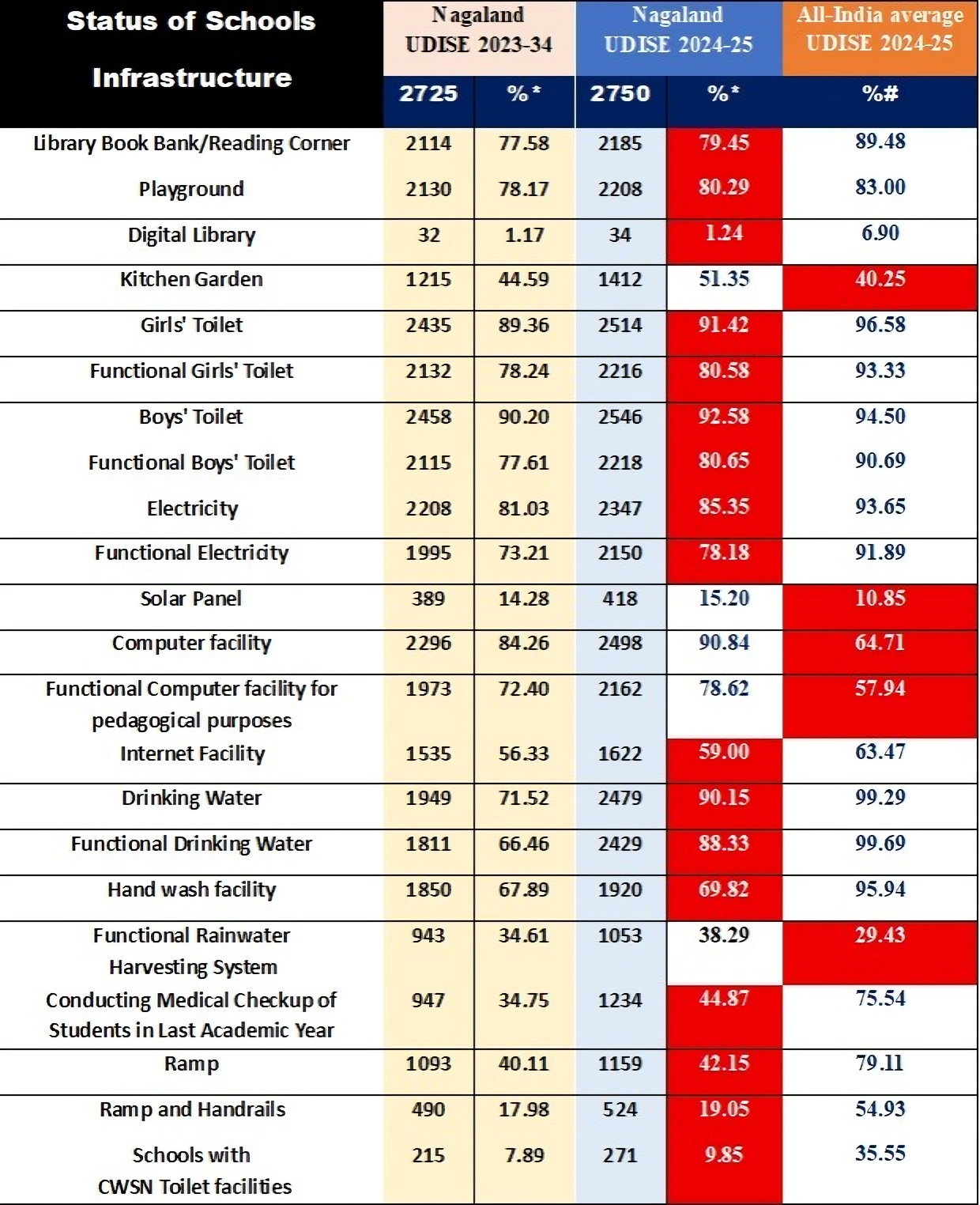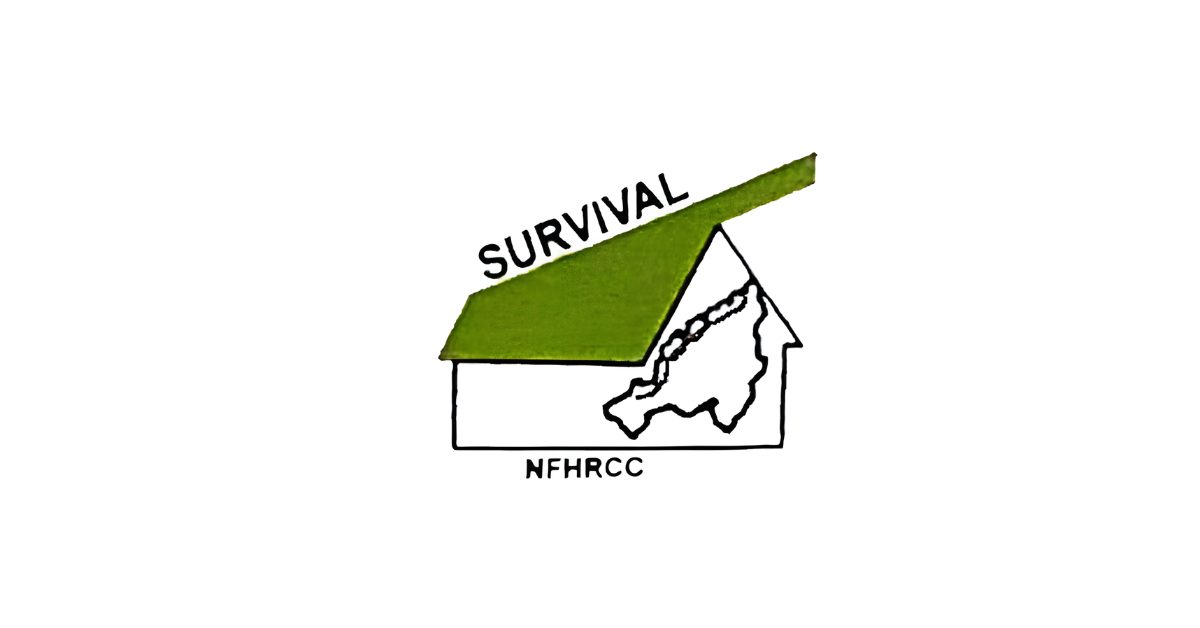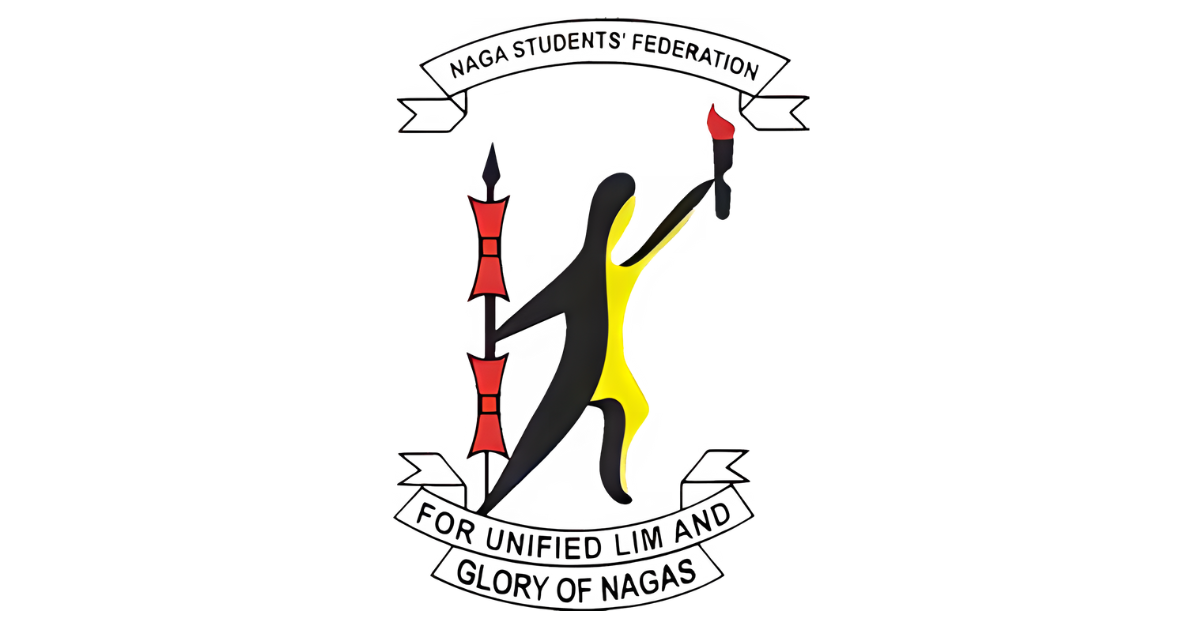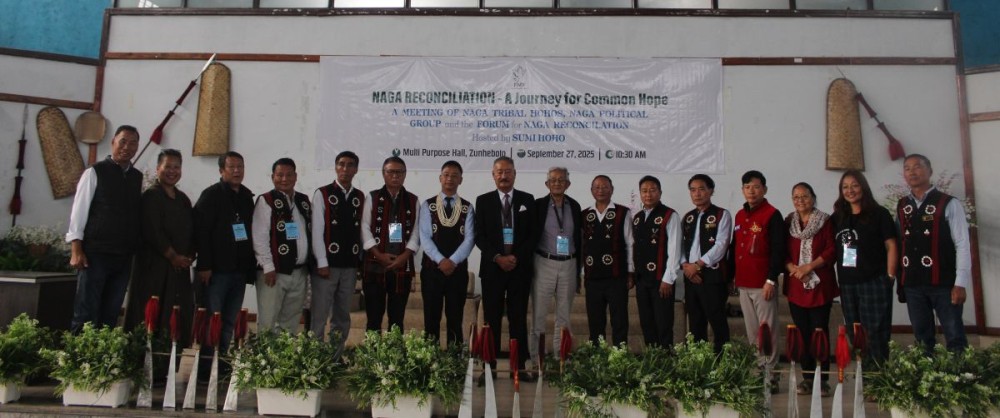A recent report on Nagaland’s schools paints a complex picture of advancement and alarming neglect. While classrooms are rapidly integrating digital tools and eco-friendly infrastructure at rates surpassing national averages, the state is failing to provide basic hygiene and accessible facilities for many students. This growing divide between modern amenities and fundamental needs raises urgent questions about the inclusivity of its educational system.
Also Read: Peleno Petenilhu gets National Teachers’ Award 2025 for community outreach
Modernisation outpaces national averages
The 2024–25 UDISE+ report highlights Nagaland’s significant progress in upgrading school facilities. The state now boasts computer facilities in 90.8% of its schools, a figure well above the 64.7% national average. It also excels in environmental initiatives, with 51.3% of schools maintaining kitchen gardens and 15.2% equipped with solar panels, both surpassing national rates.
This push for modernisation is further evidenced by Chief Minister Neiphiu Rio’s recent inauguration of 51 new school buildings and classrooms under the Samagra Shiksha scheme, part of a broader effort to enhance the educational landscape. Basic utilities have also seen improvements, with electricity now reaching 85.4% of schools.
Accessibility and hygiene remain critical hurdles
In stark contrast to these technological advancements, Nagaland falls dramatically short in providing for its most vulnerable students. Only a meagre 9.9% of its schools contain toilets accessible to children with special needs, far below the national average of 35.6%.
The situation is similar for physical access, with just 19% of schools equipped with ramps and handrails, compared to 54.9% nationwide. Furthermore, basic hygiene is a significant concern, as only 69.8% of schools provide handwashing stations, a major gap when measured against the 95.9% availability across India.
The report also notes that while 90.1% of schools have drinking water, only 88.3% have functional systems, pointing to maintenance challenges.
Also Read: Six new online degrees introduced by Gujarat University with free IKS
State initiatives aim to bridge the divide
Recognising these shortcomings, the state government is launching initiatives to create a more equitable learning environment. Chief Minister Rio has called for the replacement of temporary school structures with permanent, high-quality buildings and has emphasised the role of community ownership in maintaining these facilities.
Complementing state-level efforts, ten government schools are set to be upgraded under the national PM SHRI scheme. This programme intends to develop them into model institutions that embody the principles of the National Education Policy 2020, focussing on creating safe, engaging, and fully inclusive spaces for all learners.




